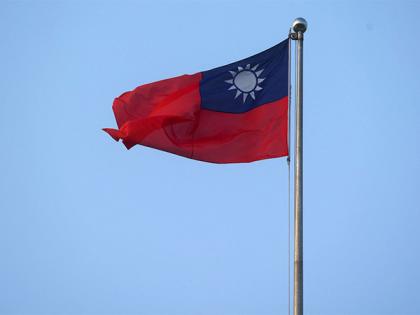Taiwan plans stricter travel rules for civil servants to counter Chinese influence
By ANI | Updated: May 31, 2025 18:18 IST2025-05-31T18:14:44+5:302025-05-31T18:18:11+5:30
Taipei [Taiwan], May 31 : Taiwan's Mainland Affairs Council (MAC) is planning to introduce stricter regulations requiring civil servants ...

Taiwan plans stricter travel rules for civil servants to counter Chinese influence
Taipei [Taiwan], May 31 : Taiwan's Mainland Affairs Council (MAC) is planning to introduce stricter regulations requiring civil servants at all levels to report or seek approval before visiting China or its territories, in a bid to bolster national security and reduce risks of infiltration by Beijing, according to the Taipei Times.
At present, only senior officials ranked at or above "rank 11" are obligated to apply for permission from the Ministry of the Interior before travelling to China, Hong Kong, or Macau. Civil servants of lower ranks are not subjected to the same requirements and are generally only required to apply for leave within their agencies. This regulatory gap has raised concerns among Taiwan's national security officials.
MAC Minister Chiu Chui-cheng stated that the current oversight is insufficient, as "some individuals may not be strictly following the rules." To address the growing concerns about Chinese political influence and espionage, the MAC has begun coordinating with multiple government agencies to close the loophole. The proposed amendments would standardise the approval process for civil servants regardless of rank or position.
According to Chiu, the revisions will include the formation of a joint review committee that would assess the purpose and itinerary of each planned trip. The National Immigration Agency and other security bodies would also be involved in evaluating the potential risks associated with such travel. The reforms aim to ensure that civil servants are not subject to undue influence or placed in vulnerable situations during their visits.
In recent years, Taiwan has become increasingly wary of Chinese efforts to exert influence over its government institutions and civil society. Incidents of espionage, cyberattacks, and the spreading of disinformation have heightened tensions between Taipei and Beijing. Officials stress that these new travel restrictions are not intended to limit personal freedoms, but to protect Taiwan's democratic governance and internal security.
The MAC is currently finalising the policy changes in collaboration with relevant departments, and the new rules are expected to be implemented following inter-agency consensus. Chiu emphasised that the Taiwanese government remains committed to transparency, security, and the safeguarding of civil service integrity.
Disclaimer: This post has been auto-published from an agency feed without any modifications to the text and has not been reviewed by an editor
Open in app